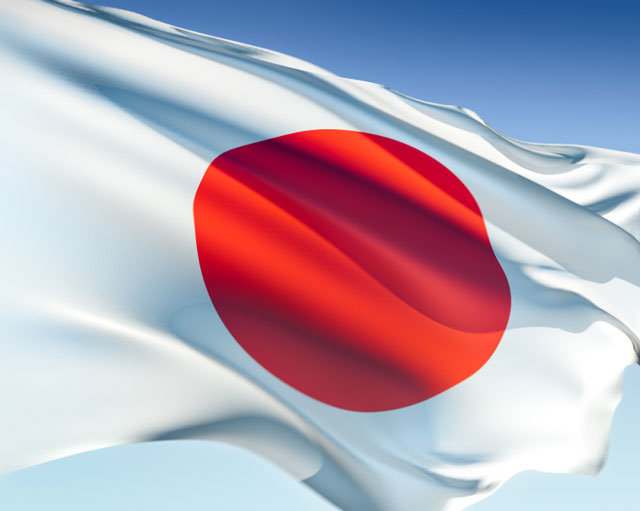Experienced Investor
Shinzo Abe’s new Japan: will it deliver returns for investors?

Japan has taken centre stage as the Prime Minister announced a snap general election, but amid the political noise, where can investors find opportunities?
Earlier this week the Prime Minister of Japan, Shinzo Abe, called a snap general election to take place next month – a year early. This decision has thrust Japan back into the political spotlight, following the country’s response to North Korea’s missile launch.
In a climate of economic and political reform – and after a strong run in the Japanese stock market – is there more to tempt investors?
Japan has delivered impressive returns over the year to date, with the average Japan trust up 27% for the year to 31 August (share price return, source: AIC) and in the past decade, the sector has returned 141%.
For three investment company managers, Japan’s positive economic growth and strong performance can continue, particularly for investors in the small-to-mid cap space.
Praveen Kumar, manager of Baillie Gifford Shin Nippon, says the small cap space provides plenty of investment opportunities: “A combination of favourable operating environment and low valuations relative to developed market peers means that Japanese smaller companies represent a very compelling proposition for long-term investors. We remain bullish.”
Speaking at the Association of Investment Companies (AIC) event, Kumar says he’s particularly excited about “disruptive, innovative businesses targeting large end markets”, which are usually run by young, dynamic entrepreneurs shrugging off the ideologies of ‘old Japan’.
He says: “Our emphasis is on growth and those businesses trying to solve problems, such as online challengers looking to disrupt existing models. They have dynamic management teams and they’re getting rid of the benign ‘jobs for life’ mentality. Instead they’re being nimble about how they make business decisions.”
He lists Harmonic Drive, the global number one company in speed reduction gears used in the joints of small robots, like those in the arms. This company has a 70% – 80% market share and is export driven.
Nippon Ceramic is another leading global company, manufacturing ultrasonic sensors used in cars. Kumar says it’s a “very traditional company” making parking sensors and has a 40% – 50% market share.
Another exciting company is MonotaRO, described as a leading online player in the domestic maintenance and repair equipment market. Kumar says this company makes safety helmets and jackets and it has a multi-layer distribution system, helped by the fact that it’s completely cut out the middle man to secure sales.
While these are companies that not many have heard of – which is why Kumar likes them – he does warn that these are for long-term investors who can handle the volatility.
Similarly, for Nicholas Price, manager of Fidelity Japanese Values, the mid-to-small cap equity space is a “fertile hunting ground that offers a wealth of under-covered and under-researched names”.
In the Japanese equity market there are c. 4,000 stocks but around 1,000 are not typically covered by analysts, providing him with ample opportunity.
He says: “With comparatively few analysts undertaking this level of research, the (return) generating potential of smaller companies can be much more significant than for large caps, given the greater market inefficiencies. And being on the ground in Japan means that we are well placed to find under-researched companies in the early stages of their development and capture the significant expansion in multiples that can occur as the story becomes more widely recognised by the market.”
Price says he looks for sustainable investment themes, and has turned his attention to those smaller companies tapping into Asian consumption markets, such as Ryohin Keikaku and Tokyo Base, listed in the speciality retail and credit card markets.
He also lists Keyence, a sensor maker, which is tapping into China and the US, as well as Misumi, providing textile machines for factories making components of the Nike trainer.
Andrew Rose, manager of the Schroder Japan Growth fund, says that Japan has lagged most other markets in 2017 in spite of a stronger Yen, but heightened geopolitical tensions may strengthen Abe’s position and investors can still benefit.
Rose says: “The Japanese stock market has lagged most other markets in 2017 in spite of robust economic and corporate fundamentals. The economy has grown for six consecutive quarters, which has not happened for 12 years and corporate profits have entered a positive phase of the revision cycle. Valuations are relatively attractive and investors should continue to benefit from improving corporate governance, one of the main successes of Abenomics.”
As such, he is finding attractive opportunities in cyclical parts of the market such as machinery, auto related companies and electronic component manufacturers.
He also lists Yamato Holdings, a trucking company delivering small parcels, such as baggage to airports. It has a 50% market share and Rose says the businesses is strong as it employs full time staff and is paying more money for wages, meaning it has had to raise prices for customers for the first time in 27 years.
He is also adding to real estate holdings and financials because they appear relatively cheap, and he’s also seeing opportunities in the retail sector.